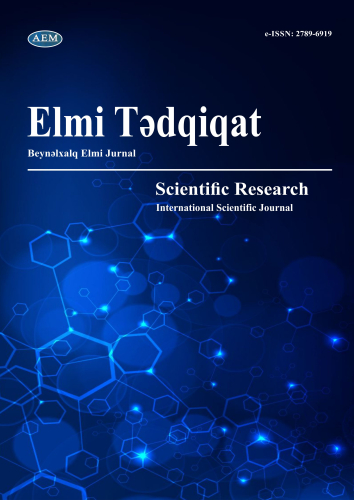DOI: https://doi.org/10.36719/2789-6919/34/14-18
Yeganə Məmmədova
Azərbaycan Dövlət Pedaqoji Universiteti
pedaqogika üzrə fəlsəfə doktoru
yeganememmedova.doc@gmail.com
ORCID: 0000-0001-8319-8849
MƏKTƏBƏQƏDƏR TƏHSİL MÜƏSSİSƏLƏRİNDƏ UŞAQLARA SƏS VƏ SÖZLƏRİN TƏLƏFFÜZÜNÜN ÖYRƏDİLMƏSİ ÜZRƏ İŞİN TƏŞKİLİ
Xülasə
Bu gün məktəbəqədər yaşlı uşaqların ana dilinə yiyələnməsi təlim-tərbiyə işinin mühüm vəzifələrindən biridir. Uşağın nitq və düşüncəsinin inkişaf etdirilməsi, ətraf aləmi dərk etməsi, şəxsiyyətinin hərtərəfli formalaşması ilə sıx surətdə bağlıdır. Böyüməkdə olan gənc nəslə məişətdə, əməkdə, ictimai fəaliyyətdə ana dilinin zənginliklərindən istifadə etməyi öyrətmək təlimin bütün mərhələlərində mühüm bir vəzifədir. Uşaq hər şeydən əvvəl, nitq səs və sözləri düzgün tələffüz etməyi öyrənməlidir. Nitq səsləri üzrə iş dilimizin fonetikası və orfoepiyasına əsaslanır. Bunun əsasında sözlərin dilin normalara uyğun tələffüzü formalaşır. Səsləri və sözləri düzgün tələffüz etməyən uşağın söz ehtiyatı nə qədər zəngin olsa da, o, qrammatik cəhətdən nə qədər mükəmməl danışsa da, onun sözləri aydın olmayacaqdır. Buna görə də uşaqlarda hələ kiçik yaşlarından nitqin fonetik cəhətini, səsləri və sözləri düzgün ifadə etmək vərdişlərini inkişaf etdirmək lazımdır. Ümumiyyətlə, uşaqların nitqindəki tələffüzün nöqsanlarını islah etmək üçün tərbiyəçi hər bir səsin düzgün artikulyasiyasını bilməklə yanaşı, bu iş prosesində aşağıdakı kimi üsullardan da istifadə edə bilər: düzgün tələffüzün nümunəsi, xorla və fərdi təkrar, bağlı inikasedici nitq, göstəriş, izah: səsin düzgün artikulyasiyasının göstərilməsi.
Açar sözlər: məktəbəqədər təhsil, nitq inkişafı, eşitmə diqqəti, fonematik eşitmə, səs tələffüzü
Yegana Mammadova
Azerbaijan State Pedagogical University
PhD in Pedagogy
yeganememmedova.doc@gmail.com
ORCID: 0000-0001-8319-8849
Organization of work on teaching the pronunciation of sounds and words to children in preschool educational institutions
Abstract
Today, acquiring the mother tongue of preschool children is one of the important tasks of education. The development of the child's speech and thinking, understanding of the surrounding world, is closely related to the comprehensive formation of his personality. Teaching the growing young generation to use the riches of their mother tongue in everyday life, work, and social activities is an important task at all stages of education. First of all, the child should learn to pronounce speech sounds and words correctly. Work on speech sounds is based on the phonetics and orthography of our language. Based on this, the pronunciation of words according to the norms of the language is formed. No matter how rich the vocabulary of a child who does not pronounce sounds and words correctly, no matter how grammatically perfect he speaks, his words will not be clear. Therefore, it is necessary to develop the phonetic aspect of speech, the habits of expressing sounds and words correctly in children from an early age. In general, in order to correct pronunciation defects in children's speech, the educator, in addition to knowing the correct articulation of each sound, can also use the following methods in this work process: an example of correct pronunciation, chorus, and individual repetition, connected reflective speech, instruction, explanation: showing the correct articulation of the sound.
Keywords: preschool education, speech development, auditory attention, phonemic hearing, voice pronunciation

